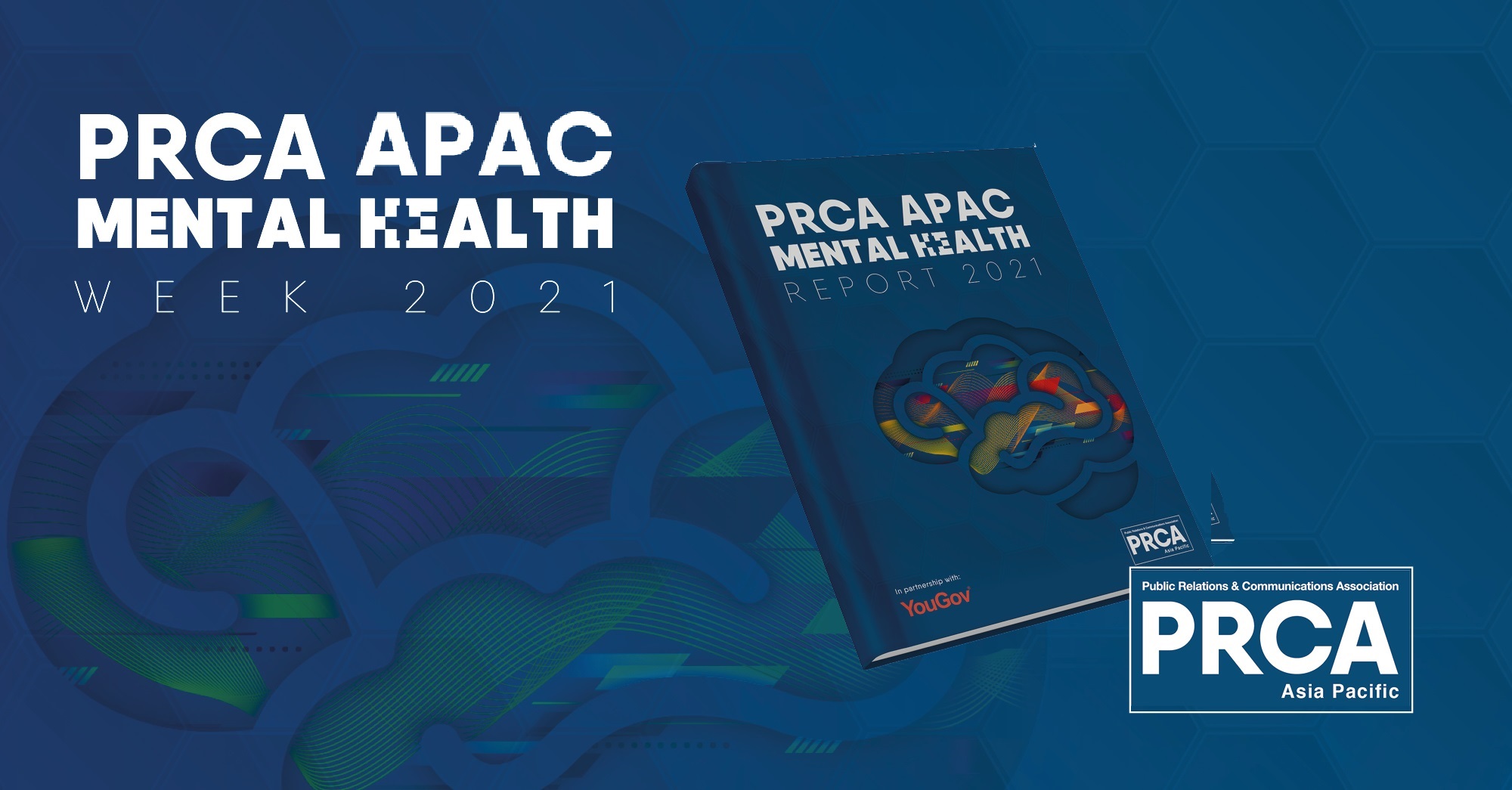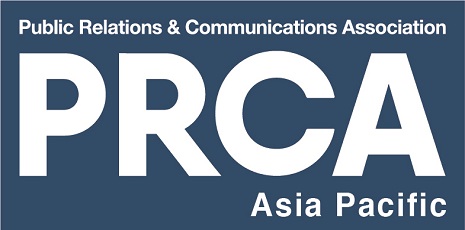
– 1,187 PRs in region surveyed by YouGov for PRCA APAC Mental Health Report
– 31% have suffered from a mental illness – rising to 40% among under-25s
– Majority (88%) would feel comfortable discussing mental health issue with co-worker
SINGAPORE, 11th October, 2021 – Nearly half of Asia Pacific’s PR practitioners (48%) say they are ‘going through a particularly stressful period in my life right now,[1] with more than a third saying the pandemic has worsened their mental health.
This is according to a survey, conducted by YouGov in collaboration with PRCA Asia Pacific, of more than 1,100 PRs from nine major markets[2] in the region. As of last month, PRCA Asia Pacific is the new brand for the trade body’s regional presence, replacing PRCA SEA, which launched in 2018.
The PRCA APAC Mental Health Report follows World Mental Health Day (Sunday 10 October), and highlights the mental health challenges faced by the profession. Nearly a third (31%) of respondents say they have had a mental health illness, a figure which is highest among younger respondents.
Overall, more respondents (39%) say that the COVID-19 pandemic has improved their mental health than say it has worsened it (35%). However, there are significant differences between countries with COVID-19 proving a particular challenge for those in Malaysia and Singapore.
Country comparisons
The study also finds that a third (32%) of the region’s employers have not communicated with staff around mental health during the last year – a number rising to 49% in Singapore and 48% in Hong Kong but dropping to 8% in Vietnam and 20% in Thailand.
In addition, nearly half (48%) of employers do not provide mental health resources to staff. Again, this figure varies significantly, and is more than 50% in Singapore (69%), Hong Kong, Malaysia (both 59%) and Indonesia (52%).
Tara Munis MPRCA, Head of PRCA Asia Pacific, said: “The PR profession has been, as ever, resourceful and resilient in the face of the huge professional and personal challenges
posed by the COVID-19 pandemic. But that resourcefulness and resilience has its limits.”
Francis Ingham MPRCA, Director General of the PRCA, said: “Across the world, PR and communications leaders are increasingly recognising the importance of positive mental health in their organisations, their clients, their teams, and themselves.
“The PRCA has long been committed to supporting the industry in improving its mental wellbeing, and this commitment has only been strengthened by the COVID-19 pandemic and the strains it has put on all of us.”
Other findings in the report include:
- The main triggers of mental ill health faced by respondents are: high workload (cited by 34% of respondents); long hours (33%); lack of reward or recognition for good work (29%); and not enough career growth (29%)
- Many respondents say they never or rarely exercise (32%), eat a healthy diet (24%) or get enough quality sleep (23%)
- Women in PR may have been particularly affected by the pandemic – 39% have experienced a loss of interest in activities or social interactions in the last 12 months (versus 27% of men); and 37% have experienced significant changes in sleep schedule or appetite (versus 28% of men)
- A large majority (88%) of respondents say they would be comfortable talking to a co-worker about their mental health problem
In his conclusion to the report, outgoing PRCA SEA Chair Lee Nugent MPRCA, Regional Director (APAC), Archetype, writes: “As employers, we can and must make changes. Providing information, support and resources is just one part. We also need to ensure that we’re creating a workplace culture where it’s ok for someone who needs help to say so. And then provide access to mental healthcare in the way that many of us already provide access to physical healthcare. The research suggests that around 29% of organisations currently offer their people access to initiatives such as EAP programmes that provide professional, expert help to those who need it. I’d like to see this figure climb rapidly in the coming months.
“Just as importantly, it’s our responsibility to also address those critical issues that, perhaps, sit at the heart of the problem. We owe it to our people to put actions in place to deal with endemic over-working, for example, and to address poor people management both where it exists inside our own organisations and in the client/agency dynamic.”
[1] 48% agreed with this assertion, 45% disagreed, 7% chose not to answer this question
[2] Australia, Hong Kong, Indonesia, Malaysia, Philippines, Singapore, Taiwan, Thailand and Vietnam.
About PRCA
The Public Relations and Communications Association (PRCA) is the world’s largest professional PR body.
We represent more than 35,000 PR professionals in 70 countries worldwide. With offices in London, Hong Kong, Dubai, Singapore and Buenos Aires, we are a global advocate for excellence in public relations.
Our mission is to create a more professional, ethical, and prosperous PR industry. We champion – and enforce – professional standards around the world through our Professional Charter and Code of Conduct. The Code compels members to adhere to the highest standards of ethical practice.
We deliver exceptional training, authoritative industry data, and global networking and development opportunities.
We also manage the International Communications Consultancy Organisation (ICCO) – the umbrella body for 41 PR associations and 3,000 agencies across the world; and LG Comms – the UK’s national body for local government communicators. Additionally, we support the delivery of the Motor Industry Communicators Association (MICA).

